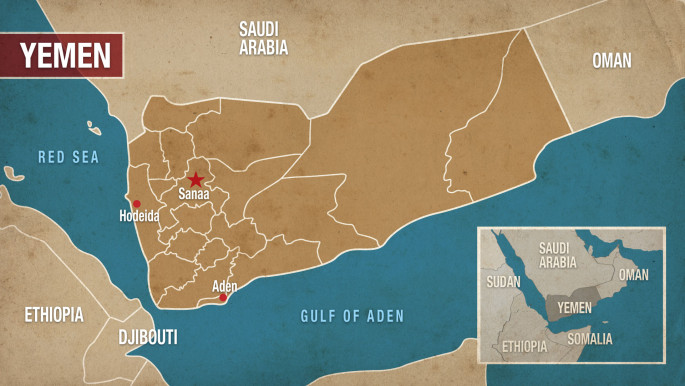Houthi handover of Hodeida: A sign of peace or a political manoeuvre?
This tentative breakthrough has materialised in the wake of the arrival of the UN monitoring team. Now Hodeida seems to regain a state of peace and calm. Notwithstanding the progress in Hodeida has raised the hope for a major advance towards peace, it remains uncertain if this handover is and will be sufficient to propel the peace process in the country.
Security officials on Saturday said that the Houthis began handing over the main port in the city to the navy and coastal guards of the government. Details pertaining to this handover remain insufficient, but it can be said that it is the first time the UN-sponsored peace talks pay off in Yemen since the breakout of war in 2015.
Once this move is proved true and honest, it would be synonymous with abandoning violence for the sake of humanity in a city which receives 70 percent of the country's commodities and aid.
|
The Houthis appear to laud this progress in Hodeida. Mohammed Abdulsalam, the Houthis' spokesperson said in a Twitter statement: "What the political leadership has made today with regard to Hodeida port is substantial progress that proves the responsibility and keenness to spare Hodeida and the entire nation the humanitarian ordeal."
He also stated that the progress in Hodeida is a proof that the Houthi political leadership is serious about establishing peace, stability and supporting the peace process.
Whether Abdulsalam's statements are serious or not, it stands clear that the Houthis have shown flexibility this time. Previously, they rejected the idea of UN monitoring teams in Hodeida but today they have found themselves in a tough position and they have to deal with the UN role in the city.
Headed by retired Dutch general Patrick Cammaert, the UN team met on December 24 with Houthi members and government officials to discuss the implementation of the ceasefire. Only one week after the arrival of the monitoring team, there has been considerable progress on the ground and fighting in the city has almost died down.
The UN backing of the Hodeida truce is robust, and the collapse of it has not seemed to be a possibility thus far. The UN Security Council came up with the unanimous resolution late December, approving and authorising the deployment of observers to oversee the Hodeida truce agreement that was reached by the Saudi-backed Yemeni government and the Houthis in Sweden.
As the truce progress is taking place in Hodeida, the delegations of both warring sides are prepared for embarking on a new round of peace talks in Sweden in January. The December talks scored a breakthrough in humanitarian issues including the Hodeida truce and prisoners swap. The January talks will go deeper to either create diplomatic storm or beget another vital stride towards overcoming in the complicated political stalemate.
Since late 2014, the Houthis have kept a firm control of the bulk of Yemen's north including Hodeida port city. They have been accused by the Yemeni government and the Saudi-led coalition of using the port for receiving weapons from Iran, the Saudi arch-rival in the region. The Yemeni government tends to think that recapturing Hodeida will weaken the Houthis and form an economic and military blow to them.
 |
|
Reducing peace opportunities
While the media reports on the Houthi withdrawal from Hodeida's main port hit the spotlight, the Yemeni government denied that the Houthis have retreated from the port.
Askr Zuail, a member of the government delegation for peace talks in Sweden, said in a statement to the Saba News Agency that the Houthi claim of withdrawal is a negative beginning towards the practical implementation of the Sweden peace agreement.
"This [Houthi] move reduces the peace opportunities and reveals the intentions of the militias and their continuous efforts to fail the UN-sponsored agreement," said Zuail.
The source indicated that the Houthis declared the redeployment in the main port and handed it over to their militants. According to Zuail, this is rejected, and it is unacceptable because it contradicts the Stockholm agreement.
The UN appears to agree with the stance of Yemeni government. On Sunday, the UN statement said the Houthi redeployment should be independently verified to ensure it is in line with the Stockholm ceasefire agreement.
The serious concern remains that this truce could be a brief respite from fighting and not a stepping stone towards peace. The UN considers the Hodeida deal as a confidence-building measure, but if this measure turns out be ineffective to establish confidence and enhance trust between the two sides, the truce will fall apart.
Speculating the absolute collapse of Hodeida truce is too early and ruling out the possibility of this agreement failure is also a rash conclusion. The success of the truce is contingent on the UN role and desire to impose a new status quo in Hodeida. Should the UN continue to confine its role to that of the facilitator, the ceasefire is at risk of miscarrying any time.
The parties to conflict always emphasise their call for wanting peace in Yemen but they have not reached it. The UN has been unable to help establish peace in Yemen, but at least it can help dictate a peaceful situation in Hodeida. The war could drag on in other parts of Yemen and the flow of goods and aid to the country will not be disrupted if the Hodeida battle is kept at bay.
The writer is a Yemeni journalist, reporting from Yemen, whose identity we are protecting for their security.
Join the conversation: @The_NewArab



